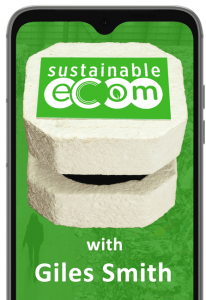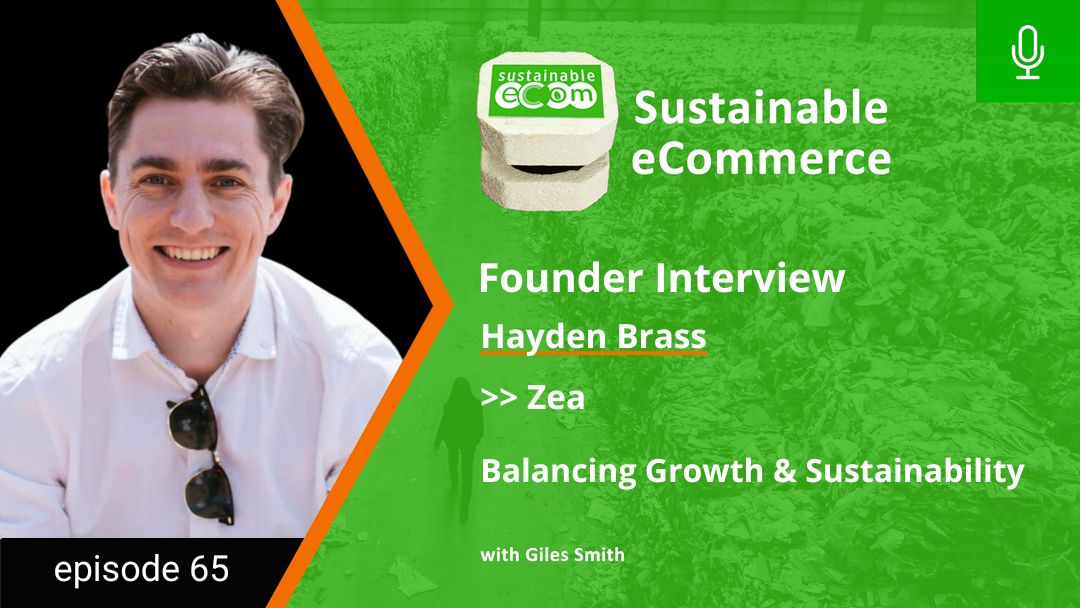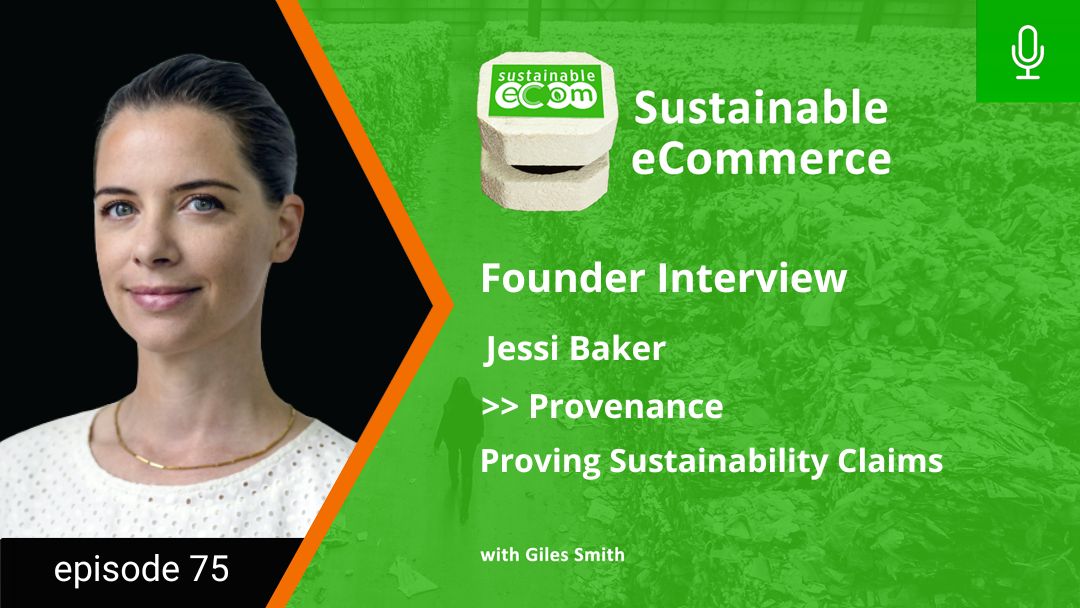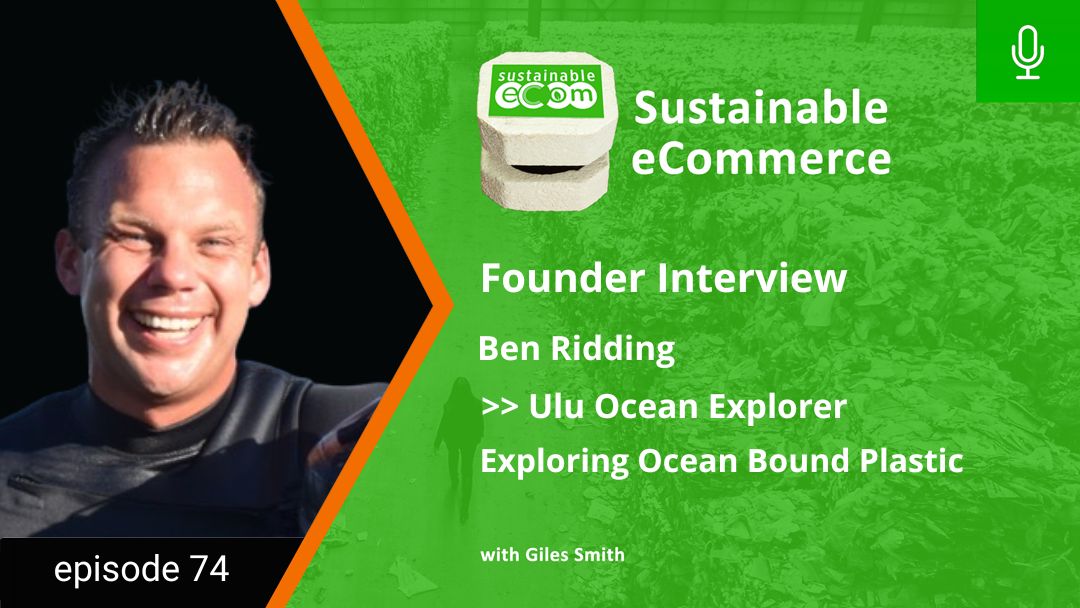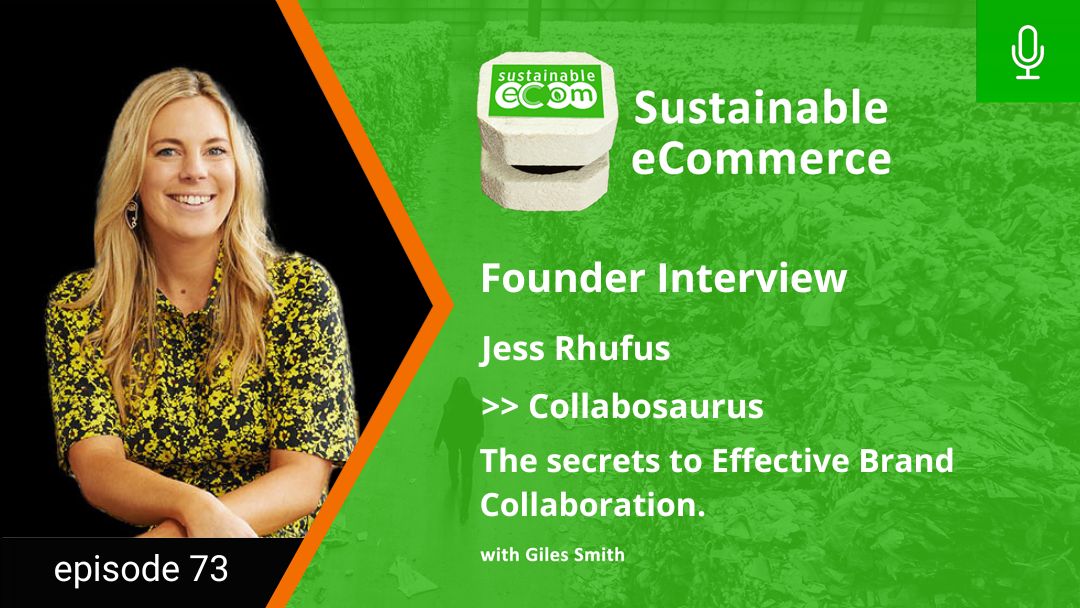Sustainable Ecommerce Podcast Episode 65
If you were to take the time to go all the way back to Episode 1, you’d hear my original definition of Sustainable Ecommerce.
While my knowledge of this space has certainly exploded thanks to all the amazing guests we’ve had on the show, chatting to today’s guest forced me to look all the way back to those foundation principles and remember that above all else, sustainable ecommerce is about managing balance.
It’s about managing the balance between profit and purpose. It’s about managing the balance between growth and sustainability, between analysis versus action, between building knowledge internally versus hiring external talent, between supporting small, local and uncertified providers vs validated overseas brands.
It's even about the balance between enthusiastically sharing how your product is better for the planet vs avoiding greenwashing at all costs.
So, my guest today is Hayden Brass, founder and CEO of Zea, a sustainable health & wellness brand with the goal to improve the quality of life and enrich the wellbeing of 10 million people globally by 2030.
Today’s conversation is a fascinating one because Hayden shares insights into just how pervasive that balance is, across all facets of his brand.
He also candidly shares many of the challenges he’s faced in the struggle to maintain the balance, especially when you’re striving for growth in both business and impact.
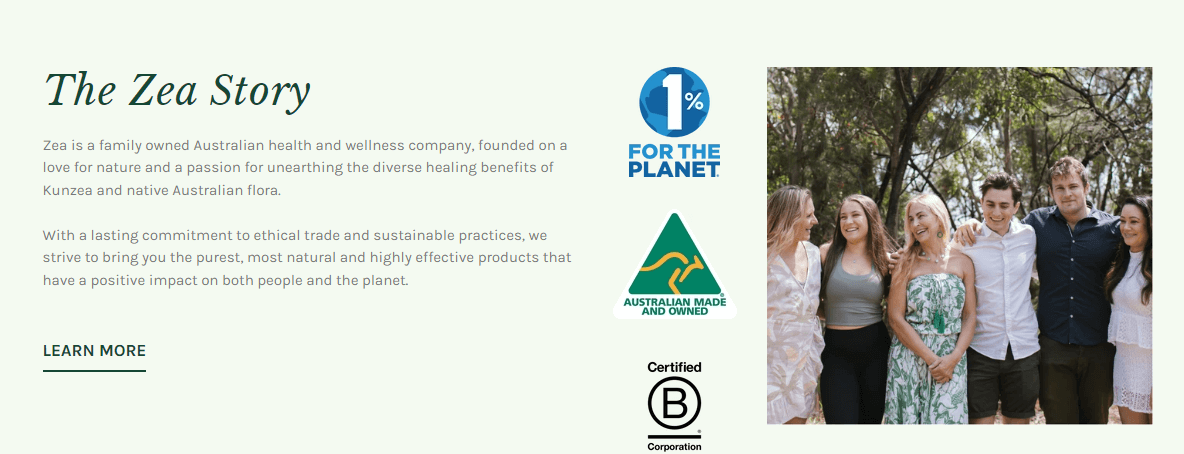
The Origins of Zea
Hayden Brass grew up in Tasmania, cutting his teeth in the small family business with his naturopath mother and horticulturalist father.
Through the many years of trade shows and market stalls selling natural soaps, candles and essential oils, customers would regularly ask if their product included Kunzea oil (Kunzea ambigua or Honey Myrtle is endemic to Tasmania). The family dabbled with formulations to meet customer enquiries and it showed some early success.
After completing is degree in Melbourne and working in consulting for a few years, in 2016 Hayden decided to take the family’s side project and build Zea as a brand that could really help people.
Today, their goal is to improve the quality of life and enrich the wellbeing of 10 million people globally by 2030.
Running a family business with a strong focus on sustainability
Family businesses have a set of strengths and weaknesses perhaps unlike other businesses. There is inherently a strong sense of loyalty to each other, and to the business itself.
For Hayden one of the key ingredients that make Zea a success is that there is no internal power struggle. It has always been clear that although it started from a family project, Zea is definitively Hayden’s business, having put in the initial capital to develop the products as well as being the key driver in the early years.
Another key is that the family is all strongly aligned with both the desire to improve people’s lives as well as optimizing the business for sustainability. These goals help keep everyone engaged and aligned much better than just making money.
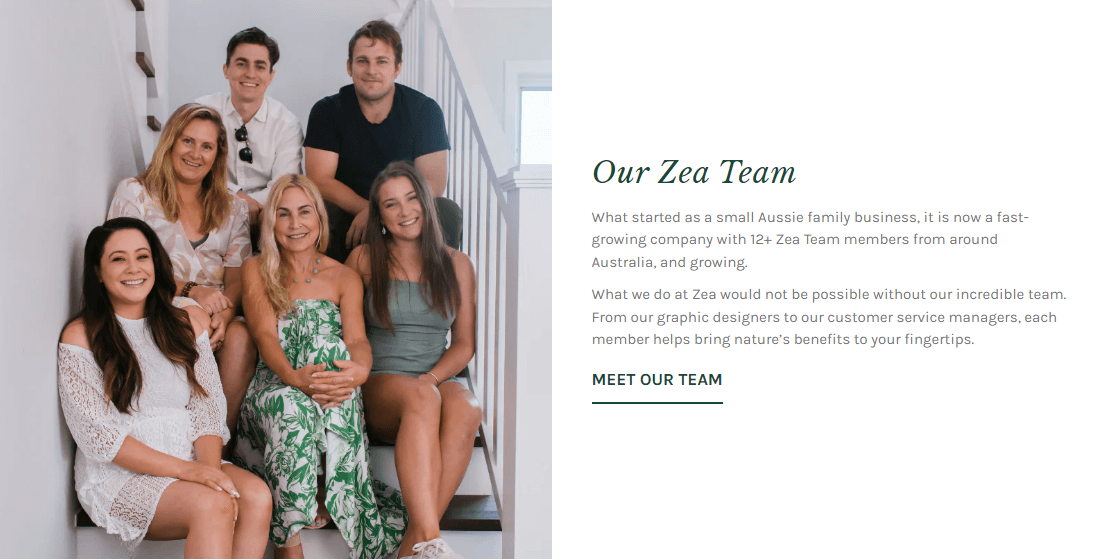
Balancing Sustainability at Zea
The whole Zea business has been built from the outset to have a strong focus on sustainability. Even the choice of the natural ingredient, how it’s harvested and the eco-conscious local suppliers they purchase from, is a conscious selection with sustainability at the core.
It is always a balancing act that needs to be weaved though all elements of their business. It has to be included in things like sales decks for major retail chains, and included in conversations to support why margins are where they are while trying to get finance.
Consumers clearly expect brands to be talking a sustainable approach, but for most people their primary consideration is to make sure the product works and is of benefit to them. You can’t lose sight of that, but with that squared away, for most people sustainability is an important checkbox in their purchasing decision.
Another element of balance is between getting certifications and choosing suppliers that match the brand’s ethos.
Case in point is organic certification. Zea chose not to get organic certification because they prefer to work with and support small local producers who are usually doing all the right things aligned with sustainability and organic produce, but getting the formal certification is not viable yet.
On the flip side, some elements of certification, especially ones that can be achieved in-house have been a significant focus, including getting B Corp certification as well as moving towards being Carbon Neutral as a business. Zea already offer carbon offsets to cover all shipping, but they have been working towards benchmarking their footprint over the past year to get fully certified carbon neutral status in the next financial year.
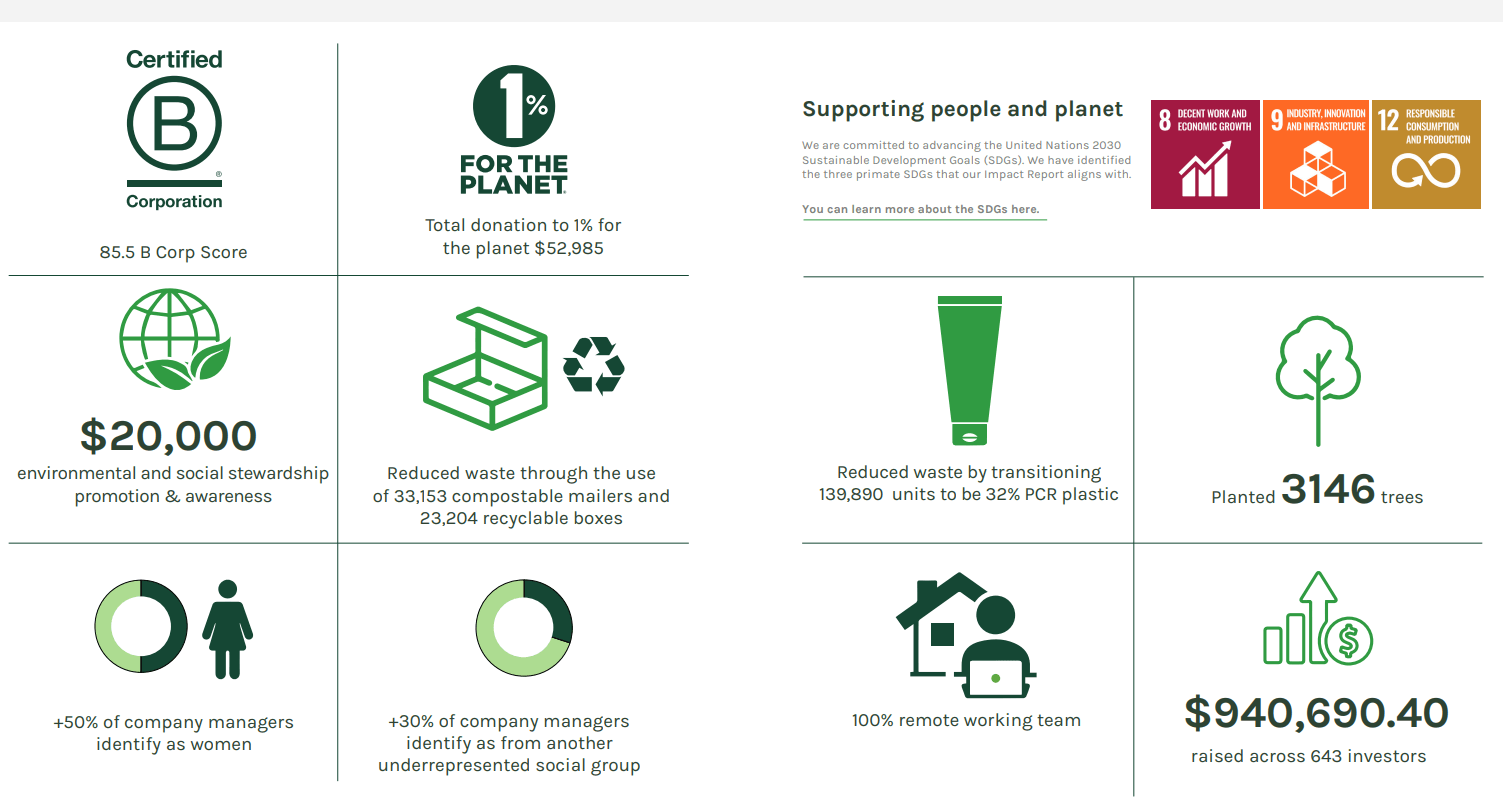
Choosing the best fit in primary packaging
The conflicting information on what materials are ‘better’ or ‘lower footprint’ makes it extremely difficult to know what path to take in primary packaging. There is also a very strong functional element to making a good choice too – for example for some clients with manual dexterity challenges, glass packaging may actually be dangerous.
Being a health and wellness product, the ingredients also need to be kept fresh. For that reason, for many of the products, Zea has chosen recyclable PCR plastic.
They are currently exploring take-back schemes for the primary packaging so that they can take responsibility for the full lifecycle.
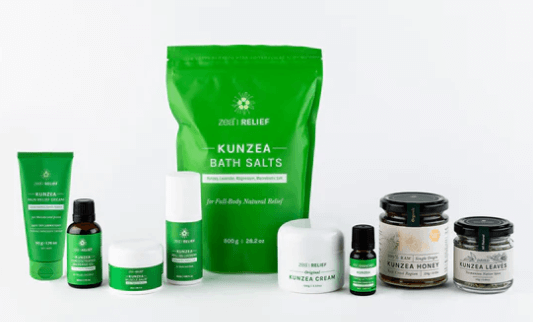
Outsourcing a Sustainability Officer
Zea have engaged an external consultant to assist them with their sustainability journey. That person helps them stay accountable to things like their B Corp commitments as well as more operationally doing things like researching packaging options and preparing the annual impact report. One particular challenge so far as that, amplified by having a fully remote team, it has been a challenge to involve the external officer an decision making in a more seamless way. That’s an aspect they continue to work on and explore.
What’s next for Zea?
Zea’s core focus is very much in impacting the life of 10 million people by 2030, through sales as well as content & philanthropy. The wholesale channel & B2B sales is a core focus for Hayden especially in Australia and continues to be their main growth strategy, with over 1000 retail outlets now offering Zea products. They have just secured national distribution into Terry White’s Chemists. Beyond that, they are actively investigating how to leverage the Kunzea oil into other products to compete in other verticals as well as exploring international distribution.
To try out Zea products head over to https:/zea.com.au
Top Takeouts
I think my main takeout for you from today’s chat with Hayden is that if you find yourself struggling to balance profitable growth with making sustainable choices, you’re definitely not alone!
And the reason it can seem to tricky is because this isn’t a simple 2-dimensional balance issue. To conjure up some sort of mental imagery, it’s more like a balance ball than a see-saw.
You have to find that balance across every aspect of your business. You heard Hayden talk about expectations at play for gross margins to get finance, versus the embedded costs of organic supply.
He talked about balancing the expectation for getting organic certification versus supporting local suppliers. And of course balancing the mind share of getting B Corp certification with chasing down growth, especially in tough economic conditions.
So we know that walking a pathway to sustainability is the right thing to do. It’s essential for the health of our planet. Consumers expect it, even if it is just one checkbox among their purchasing criteria, and increasingly regulators and investors are demanding it.
None of that makes it easy to balance though, so never forget that what you’re doing in building your own sustainable brand is incredible, and you should be very proud of how far you’ve come.





